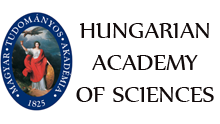Académie des Sciences d'Hongrie (MTA)

The Hungarian Academy of Sciences (MTA) is the oldest and greatest institution of Hungarian science. Its founder was Count István Széchenyi who on 3 November, 1825, during the Pozsony (Bratislava) National Assembly bestowed a year’s income of his estates towards the formation of a learned society. The formation of a Hungarian Academy – a Hungarian Learned Society at the time – was laid down in Law XI. of 1827. The Main Halls of the MTA, as designed by Prussian architect Friedrich August Schüler, were ceremoniously opened on 11 December, 1865.
MTA is a public body functioning as a self-regulatory legal entity that procures a national public duty by practising, supporting, overseeing and representing science.
In order to support and further the cause of scientific research, MTA maintains a network of full-time research personnel which in turn is a fundamental pillar of the country’s scientific life.
MTA’s public body and the academicians
MTA’s public body consists of academicians and scholars holding a science degree obtained or naturalized in Hungary. Some 15 thousand of them play a role in solving the everyday challenges facing Hungarian science. Academicians are elected by domestic members. Any Hungarian citizen can be chosen to serve as a corresponding member who holds a Doctor of the Academy title or has a scientific title deemed equivalent.
The General Assembly
The General Assembly is MTA’s supreme decision making body. Its membership is made up of domestic academicians and non-academician General Assembly representatives. A General Assembly is held at least once every year. One of the main tasks of the General Assembly is to elect the members of the Presidium: the President, the General Secretary and his Deputy. The three vice-presidents are also elected for three years. In-between General Assemblies it is the Presidium that makes decisions.
Scientific sections
The basic units of the public structure of MTA are made up of eleven scientific sections. They include representatives of one or several closely related branches of science. Their membership consists of academicians and non-academicians (elected to the General Assembly).